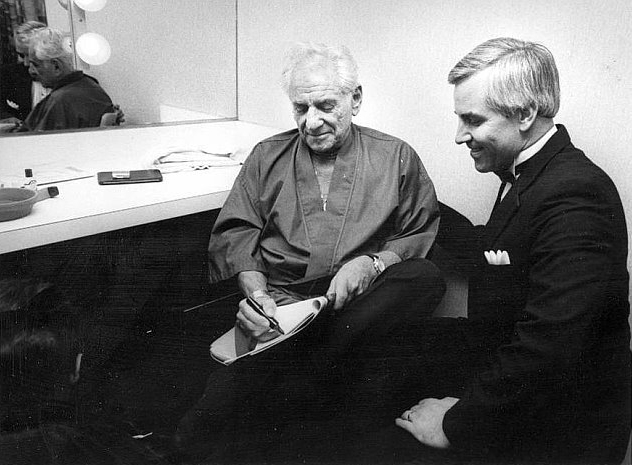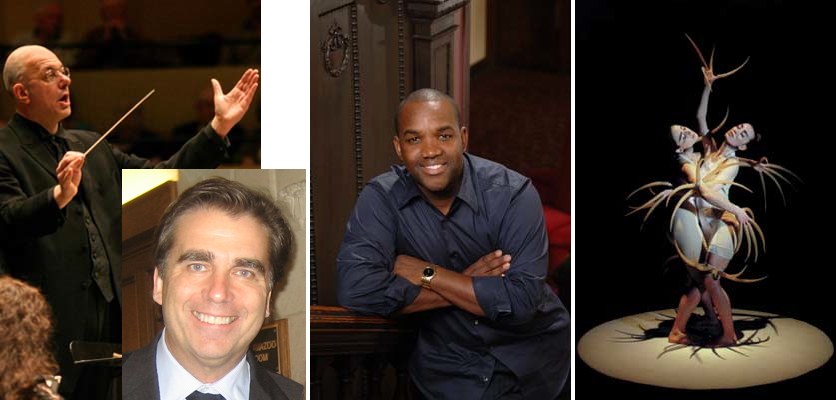Non-profit organizations (NPO) are all the more fascinating as they must be, if not “profitable,” at least capable of operating on budget and offer some form of moral earnings and satisfaction to their patrons. Just as any business, they must show real numbers in order to justify their existence and the continued involvement of donors (think of them as angels or VCs with a passion.)
The University Musical Society (UMS) in Ann Arbor, MI (which grew from a group of local university and townspeople who gathered together to study Händel’s Messiah in 1879) is one of the oldest multi-disciplinary performing arts presenters in this country and certainly also one of the most energetic, having recently successfully concluded a $25M eight-year fundraising campaign. The amount is impressive by itself, of course, but even more remarkable are a few additional numbers reflective of the vitality of the organization during the campaign. Here are some of them:
- Attendance at UMS performances: 770,973
- Public performances offered: 582
- Total number of new works commissioned during campaign period: 30
- Educational events offered: 1,224
- Number of artists presented: 14,110 (0f which 5,998 were Michigan artists)
Just as in any company, the key to success of a NPO is the team, and most importantly its leader, in this case Ken Fischer. I simply do not know where to start to describe this man[1]. He became President of the UMS in 1987. He breathes music. Everybody in his family is a musician or deals with music one way or another, including his son, Matt Fischer, now Director, Marketing and Partnerships, of iTunes at Apple. Ken seems to know virtually everybody in the performing arts industry and, although extremely busy, he always finds a way to make himself available to meet new people. UMS’s inclusion policy is EINO – “Everybody In, Nobody Out” – passed down from Ken’s mentor Patrick Hayes, the legendary impresario of Washington DC. Also, like all top players, he surrounds himself with other top players, be they employees or the multiple interns that the UMS welcomes every year.
 (Photo David Smith): Ken Fischer with Leonard Bernstein in the conductor’s dressing room at the Ann Arbor Hill Auditorium following the October 29, 1988, Vienna Philharmonic concert. All 4,192 seats were occupied, 550 of them by students who paid $10 each for a ticket. “This was the first concert I heard in Ann Arbor,” Director of Programming Michael Kondziolka, says. “I was 23 years old. That day, I knew I was not to leave this town.”
(Photo David Smith): Ken Fischer with Leonard Bernstein in the conductor’s dressing room at the Ann Arbor Hill Auditorium following the October 29, 1988, Vienna Philharmonic concert. All 4,192 seats were occupied, 550 of them by students who paid $10 each for a ticket. “This was the first concert I heard in Ann Arbor,” Director of Programming Michael Kondziolka, says. “I was 23 years old. That day, I knew I was not to leave this town.”
As a newly appointed member of the UMS National Council, I was able to see for myself how well this organization is run, and how constructive budget discussions can be when a director of programming (Michael Kondziolka), a director of marketing and communications (Sara Billmann), a development director (Susan McClanahan), an education/audience development director (Claire Rice), a production director (Doug Witney) and an administrative director/CFO (John Kennard) unambiguously share the same goal of sustaining the distinctive quality of an organization as well as the continued and recurring satisfaction of its audience. A lot of VPs of marketing in for-profit companies may want to listen to Sara Billmann’s thorough reflection on the results of an extensive study she co-chaired on the motivations that drive attendance and donations for the performing arts. She is a former oboist herself, as well as a Stanford MBA, and she gets it. She knows that, contrary to a lot of businesses, the margin of error in live arts is extremely small. And so does clarinetist Michael Kondziolka, who started his business life as the operations manager of a Merrill Lynch subsidiary in Minneapolis. No matter how you slice it, he says, “empty auditoriums show that you are not offering the right product line. This does not mean that you should only present what the public already knows. This means that you must creatively balance the season between performances that are accessible while preparing the audience for more cutting-edge productions.” The team obviously excels in risk modeling and quantification: The UMS is a recognized leadership organization that transforms Ann Arbor into a much sought-after stop for both world-class performers and music loving audiences.
And when a NPO shows great management and great traction, it attracts not only big donors, but also a large number of smaller ones (more than 3000 individual donors made over 16,000 gifts during the Campaign). A performing arts NPO is like a non-stop startup. You make revenues from ticket sales, but you constantly need to raise money. The minute you meet Ken Fischer and his team, the chairs of his most recent campaign (Ann and Clayton Wilhite), his Board (currently headed by Carl Herstein), or anyone who has supported the UMS, you want to contribute (and will most likely continue to do so). You are not pouring water in a sieve. You are securely investing in a sustainable enterprise that demonstrates the extraordinary appeal of live performing arts to people of all walks of life, who did not realize they “would like it so much.”
From left to right, Jerusalem Symphony with Leon Botstein, conductor, Robert McDuffie, violin (Nov. 2008); Tenor Lawrence Brownlee who will be accompanied by Martin Katz, piano (Feb. 2009); Compagnie Marie Chouinard (April 2009). Full calendar of events: http://www.ums.org/s_current_season/default.asp
More about Ken Fischer:
[1] http://www.culturalalliancesemi.org/index.php?option=com_content&task=view&id=57&Itemid=0
More about the UMS:
http://www.ums.org/s_make_a_gift/
Marylene Delbourg-Delphis


0 responses so far ↓
There are no comments yet...Kick things off by filling out the form below.
Leave a Comment